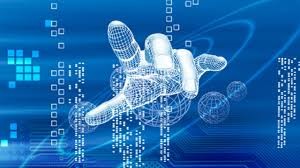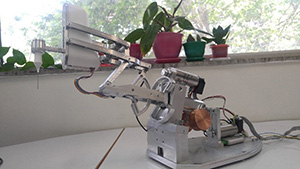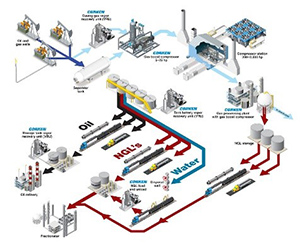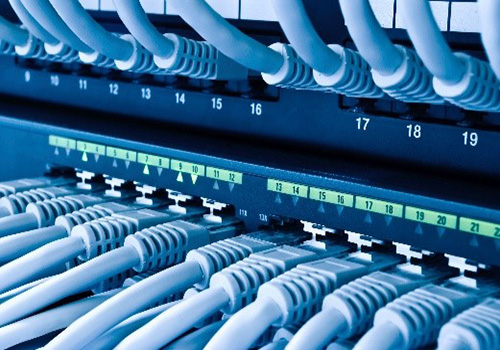About Us
Established in 1928, the Faculty of Electrical Engineering has accomplished strong research and academic outcomes to become one of the country’s leading institution in this field. The Faculty is home of six departments, creating a vibrant environment with much to offer to undergraduate and graduate students.
The history of the Faculty of Electrical Engineering goes back to 1928, when it has been established as the institute of higher education in the Ministry of Post, Telegraph and Telephone. Later in 1980, the faculty is reformed into the department of Electrical Engineering, as one of the core departments of K. N. Toosi University of Technology, established in 1928. During its 90+ years of academic activity, the Faculty has had the glory of training many successful experts and executives for the industry, highly-reputed academic professionals, and highly-respected intellectuals of the country.

Cooperation program with Iranian experts and technologists abroad
Cooperation program with Iranian experts and technologists abroad
Research
With more than 60 faculty members, an annual average of more than 180 international papers, and more than 650 graduate students, the Faculty of Electrical Engineering is one of the university engines of research and innovation.
Department of Communications is the most precedent educational core of both Faculty of Electrical Engineering and K.N. Toosi University of Technology. This department is active in traditional communications, optical communications, and telecommunication circuits and systems.
Core research areas:
- Electromagnetic Waves Analysis and Simulation
- Information Theory, Coding, and Secure Communications
- Wireless and Mobile Communications
- Optics and Plasmonics, Materials, Effects, and Devices
- Antennas and Microwave
- Digital Signal Processing
- RF and Microwave Circuits
- Radar Systems
Core Research Labs:
- Broadband Wireless Communication and Signal Processing Laboratory
- Coding and Cryptography Laboratory
- Communication Systems Laboratory
- Optical Communications and Nano-optics Laboratory
- Radar Advanced Technologies Laboratory
- Electromagnetic Simulation Laboratory
- Wireless Terminals Quality Control Laboratory
Department of Electrical Power Systems has a reputed history in teaching and research in various branches of electric power generation, transmission, dispatching, power electronics, and electric machinery. Reputation of the faculty members, students, and alumni stems from their quality academic research as well as their efforts in solving practical challenges in electrical industries of the country. Professional activities of the Department are conducted in two major areas: power systems, and electrical machinery and power electronics.
Core research areas:
- Power Systems Dynamics
- High Voltage and Insulation
- Power Electronics and Electrical Drives
- Power Quality and Flexible Power Systems
- Advanced Power System Operation and Control
- Analysis and Design of Electrical Machines
- Electrical Power Distribution Systems
- Hybrid and Electrical Vehicles
- Smart Grids
Core Research Labs:
- Electrical Machines and vehicles laboratory
- Management of Electric Energy and Distribution Systems Laboratory
- Electric Power Quality and Power Control Laboratory
- Advanced Motion Control & Power Electronic Research Laboratory
- High Voltage Laboratory
Department of Electronics is one of the first educational cores of the Faculty of Electrical Engineering. Academic activities of this department are conducted in two major areas: Semiconductor Physics and Technology and Electronic Circuits and Systems. Department of Electronics has placed K. N. Toosi University of Technology among the country’s highly-reputed universities in education and research in Electronics.
Core research areas:
- Microtechnology and Sensors
- Solid-State Physics and Devices
- Nanotechnology and Nanoelectronics
- Quantum Electronics
- Analog and RF Circuits and Systems
- Digital and VLSI Systems
- Computer Systems and Networks
- Sensor Networks
Core Research Labs:
- Electronic Materials Laboratory (EML)
- Semiconductor Devices Laboratory
- Organic Electronics Laboratory
- Virtual-Hardware Description Language (VHDL)
- Research Laboratory for Integrated Circuits and Systems (ICAS)
- Microelectronic Circuits Laboratory
- Electronic Signals and Systems Laboratory
- High Frequency Circuits and Systems Laboratory (HFCAS)
Department of Systems and Control at the Faculty of Electrical Engineering is proud of its significant role in training expert individuals, who are involved in a wide variety of professional activities in both academia and the industry. Taking into consideration theoretical and practical advancements of different fields of “systems and control”, research activities of the Department’s faculty members involve a wide variety of subjects ranging from fundamental studies on the theory to application-oriented issues in practical environment.
Core research areas:
- Adaptive and Nonlinear Control
- Bio Mechatronics
- Decision and Cognition
- Fractional Order Systems and Controllers
- Hybrid Systems
- Industrial Systems Control
- Intelligent Control
- Modeling and Systems Identification
- Model Predictive and Optimal Control
- Multivariable Control
- Networked Control Systems
- Robotics
Core Research Labs:
- Industrial Control Laboratory
- Smart Systems Laboratory
- Advanced Automation Laboratory
- Advanced Control Systems Laboratory
- Robotics Laboratory
- System Identification and Modeling Laboratory
- Systems Engineering and Cognition Studies Laboratory
- Computer Control Laboratory
- Instrumentation Laboratory
Research activities at this department are inherently inter-disciplinary, necessitating collaboration between professionals in engineering, medicine, and biology. International scientific and research collaborations are among the notable features of this department, an example of which is the joint Ph.D. and M.Sc. dual-degree program in collaboration with the Medical School of the University of Picardie Jules Verne, France.
Core research areas:
- Biomedical Instrumentation
- Biological Data and Signal Analysis
- Biomedical Functional and Structural Image Processing
- Speech and Sound Processing in Medical and Psychological Assessment
- Brain-Computer Interfacing
- Neural and Cognitive Engineering
- Implantable Microsystems
- Computational Bioelectromagnetic Techniques
- Human Motor Control
- Electrical and Electromagnetic Safety in Medical Devices
- Artificial Intelligence in Biomedical Engineering
Core Research Labs:
- Bioelectric Artificial Organs Laboratory
- Biomedical Measurement Laboratory
- Machine Vision and Medical Image Processing Laboratory (MVMIP)
N. Toosi University of Technology was the first among the country’s public universities to establish Department of Mechatronics. In 2003, the Faculties of Electrical and Mechanical Engineering jointly founded the Department of Mechatronics through admission of M.Sc. students. The mission of the department is to create the infrastructure for collaborations between the two Faculties in order to induce synergy in the design and implementation of mechatronic products dedicated to the industry.
Core research areas:
- Assistive Robotics
- Biomechatronic Systems
- Bio-MEMS
- Fault Diagnosis
- Intelligent Systems
- System Identification
- Wearable Technologies
Core Research Labs:
- Fault Detection and Identification Laboratory
- Mechatronics Laboratory (Electrical Eng.)
- Mechatronics Laboratory (Mechanical Eng.)
- Communications
-
Department of Communications is the most precedent educational core of both Faculty of Electrical Engineering and K.N. Toosi University of Technology. This department is active in traditional communications, optical communications, and telecommunication circuits and systems.
Core research areas:
- Electromagnetic Waves Analysis and Simulation
- Information Theory, Coding, and Secure Communications
- Wireless and Mobile Communications
- Optics and Plasmonics, Materials, Effects, and Devices
- Antennas and Microwave
- Digital Signal Processing
- RF and Microwave Circuits
- Radar Systems
Core Research Labs:
- Broadband Wireless Communication and Signal Processing Laboratory
- Coding and Cryptography Laboratory
- Communication Systems Laboratory
- Optical Communications and Nano-optics Laboratory
- Radar Advanced Technologies Laboratory
- Electromagnetic Simulation Laboratory
- Wireless Terminals Quality Control Laboratory
- Power Systems
-
Department of Electrical Power Systems has a reputed history in teaching and research in various branches of electric power generation, transmission, dispatching, power electronics, and electric machinery. Reputation of the faculty members, students, and alumni stems from their quality academic research as well as their efforts in solving practical challenges in electrical industries of the country. Professional activities of the Department are conducted in two major areas: power systems, and electrical machinery and power electronics.
Core research areas:
- Power Systems Dynamics
- High Voltage and Insulation
- Power Electronics and Electrical Drives
- Power Quality and Flexible Power Systems
- Advanced Power System Operation and Control
- Analysis and Design of Electrical Machines
- Electrical Power Distribution Systems
- Hybrid and Electrical Vehicles
- Smart Grids
Core Research Labs:
- Electrical Machines and vehicles laboratory
- Management of Electric Energy and Distribution Systems Laboratory
- Electric Power Quality and Power Control Laboratory
- Advanced Motion Control & Power Electronic Research Laboratory
- High Voltage Laboratory
- Electronics
-
Department of Electronics is one of the first educational cores of the Faculty of Electrical Engineering. Academic activities of this department are conducted in two major areas: Semiconductor Physics and Technology and Electronic Circuits and Systems. Department of Electronics has placed K. N. Toosi University of Technology among the country’s highly-reputed universities in education and research in Electronics.
Core research areas:
- Microtechnology and Sensors
- Solid-State Physics and Devices
- Nanotechnology and Nanoelectronics
- Quantum Electronics
- Analog and RF Circuits and Systems
- Digital and VLSI Systems
- Computer Systems and Networks
- Sensor Networks
Core Research Labs:
- Electronic Materials Laboratory (EML)
- Semiconductor Devices Laboratory
- Organic Electronics Laboratory
- Virtual-Hardware Description Language (VHDL)
- Research Laboratory for Integrated Circuits and Systems (ICAS)
- Microelectronic Circuits Laboratory
- Electronic Signals and Systems Laboratory
- High Frequency Circuits and Systems Laboratory (HFCAS)
- Systems and Control
-
Department of Systems and Control at the Faculty of Electrical Engineering is proud of its significant role in training expert individuals, who are involved in a wide variety of professional activities in both academia and the industry. Taking into consideration theoretical and practical advancements of different fields of “systems and control”, research activities of the Department’s faculty members involve a wide variety of subjects ranging from fundamental studies on the theory to application-oriented issues in practical environment.
Core research areas:
- Adaptive and Nonlinear Control
- Bio Mechatronics
- Decision and Cognition
- Fractional Order Systems and Controllers
- Hybrid Systems
- Industrial Systems Control
- Intelligent Control
- Modeling and Systems Identification
- Model Predictive and Optimal Control
- Multivariable Control
- Networked Control Systems
- Robotics
Core Research Labs:
- Industrial Control Laboratory
- Smart Systems Laboratory
- Advanced Automation Laboratory
- Advanced Control Systems Laboratory
- Robotics Laboratory
- System Identification and Modeling Laboratory
- Systems Engineering and Cognition Studies Laboratory
- Computer Control Laboratory
- Instrumentation Laboratory
- Biomedical Engineering
-
Research activities at this department are inherently inter-disciplinary, necessitating collaboration between professionals in engineering, medicine, and biology. International scientific and research collaborations are among the notable features of this department, an example of which is the joint Ph.D. and M.Sc. dual-degree program in collaboration with the Medical School of the University of Picardie Jules Verne, France.
Core research areas:
- Biomedical Instrumentation
- Biological Data and Signal Analysis
- Biomedical Functional and Structural Image Processing
- Speech and Sound Processing in Medical and Psychological Assessment
- Brain-Computer Interfacing
- Neural and Cognitive Engineering
- Implantable Microsystems
- Computational Bioelectromagnetic Techniques
- Human Motor Control
- Electrical and Electromagnetic Safety in Medical Devices
- Artificial Intelligence in Biomedical Engineering
Core Research Labs:
- Bioelectric Artificial Organs Laboratory
- Biomedical Measurement Laboratory
- Machine Vision and Medical Image Processing Laboratory (MVMIP)
- Mechatronics
-
N. Toosi University of Technology was the first among the country’s public universities to establish Department of Mechatronics. In 2003, the Faculties of Electrical and Mechanical Engineering jointly founded the Department of Mechatronics through admission of M.Sc. students. The mission of the department is to create the infrastructure for collaborations between the two Faculties in order to induce synergy in the design and implementation of mechatronic products dedicated to the industry.
Core research areas:
- Assistive Robotics
- Biomechatronic Systems
- Bio-MEMS
- Fault Diagnosis
- Intelligent Systems
- System Identification
- Wearable Technologies
Core Research Labs:
- Fault Detection and Identification Laboratory
- Mechatronics Laboratory (Electrical Eng.)
- Mechatronics Laboratory (Mechanical Eng.)
Research Centers:
Center for Research and Technology (CReaTech)
 The Center of Research and Technology is a place for cutting edge inter-disciplinary and multi-disciplinary scientific, technical, and technological activities and projects. The Center comprises of 21 research thrusts from different disciplines within the Faculty of Electrical Engineering. It provides three separate office halls with the capacity of up to 45 seats for researchers, a lab space for the conduction of practical projects and experiments as well as technology development, a multi-purpose demo/expo hall, and a meeting room.
The Center of Research and Technology is a place for cutting edge inter-disciplinary and multi-disciplinary scientific, technical, and technological activities and projects. The Center comprises of 21 research thrusts from different disciplines within the Faculty of Electrical Engineering. It provides three separate office halls with the capacity of up to 45 seats for researchers, a lab space for the conduction of practical projects and experiments as well as technology development, a multi-purpose demo/expo hall, and a meeting room.
The research thrusts at the CREATECH center include: Assistive Robotic and Biomechatronic Systems, Brain–Computer Interface (BCI) Systems, Control of Cyber-Physical Systems, Electromagnetic Radiation and Compatibility (ELERC), Energy Smart Grids, Fractional Order Systems and Controllers, Functional Imaging and Human Brain Mapping, Information Theory and Communication Security, Micro- and Nanoelectronic Computation, Millimeter Wave and Terahertz Technology, Monitoring in Power Systems, Nanostructures, Optical Networking, Photonics and THz Devices, Power System Security, Radar System Design, and Time-Domain Electromagnetics (TEM).
Advanced Robotics and Automated Systems (ARAS)
 ARAS Research group was originated in 1997 and is proud of its 20+ years of brilliant background, and its contributions to the advancement of academic education and research in the field of Robotics. ARAS outcomes are well represented by the industrial engineers, researchers, and scientific figures graduated from this group, and numerous industrial and R&D projects being conducted here. The current research themes include:
ARAS Research group was originated in 1997 and is proud of its 20+ years of brilliant background, and its contributions to the advancement of academic education and research in the field of Robotics. ARAS outcomes are well represented by the industrial engineers, researchers, and scientific figures graduated from this group, and numerous industrial and R&D projects being conducted here. The current research themes include:
Autonomous Robotics | Surgical Robotics | Parallel and Cable Robotics | Dynamic System Analysis and Control | Electric Vehicles | Visual Robotics
Advanced Process Automation and Control (APAC)
 The APAC research group was established in 2007 with the vision of conducting researches on theory and application of advanced control and automation systems. APAC team succeeded on opening up new horizons on control theories as well as conducting several industrial projects. Some of these projects are as follows:
The APAC research group was established in 2007 with the vision of conducting researches on theory and application of advanced control and automation systems. APAC team succeeded on opening up new horizons on control theories as well as conducting several industrial projects. Some of these projects are as follows:
- Advanced process control
- Condition monitoring
- Mechatronics systems
- Robot Design
- Researches on control theories
- APAC Lab Complex
Academics
The Faculty of Electrical Engineering offers B.Sc, M.Sc and PhD programs in its diverse fields of study. The educational programs at the faculty aims to present the endless possibilities that an electrical engineering student can achieve to boost his/her career. Faculty of Electrical Engineering comprises of six academic departments and offers the following programs:
Programs and Degrees:
| BSc | MSc | PhD |
|---|---|---|
|
Communications Electrical Power Systems Electronics Systems and Control |
Biomedical Engineering, Communications, (two majors) Electrical Power Systems, (two majors) Electronics, (two majors) Mechatronics Systems and Control (two majors) |
Biomedical Engineering Communications Electrical Power Systems Electronics Systems and Control |
International Joint Programs:
Faculty of Electrical Engineering of K. N. Toosi University of Technology benefits from its extensive international academic collaborations. The Faculty experienced joint Ph.D. programs in Power Engineering with the Leibnitz University of Hannover (Germany), and Biomedical Engineering with Picardie University Jules Verne (France).
In the context of joint research at both Masters and Ph.D. levels, the Faculty has a long list of international collaborators namely: the University of Michigan, INRIA Research Institute (France), University of Picardie Jules Verne (France), École Poly technique de Montréal (Canada), University of Laval (Canada), ETS (Canada), University of Dublin (Ireland), Fraunhofer Research Institute (Germany), University of Bremen (Germany), ETH-Zurich, (Switzerland), and the University of Western Ontario (Canada).
Faculty Members
| Faculty Member | Faculty | Department |
|---|---|---|
 | Electrical Engineering | Biomedical Engineering |
 Reza Jafari | Electrical Engineering | Biomedical Engineering |
 Ali Khadem | Electrical Engineering | Biomedical Engineering |
 Maryam Mohebi Ashtieani | Electrical Engineering | Biomedical Engineering |
 Mansour Vali | Electrical Engineering | Biomedical Engineering |
 Farhad Akbari Boroumand | Electrical Engineering | Electronics |
 Mohammad Yousef Darmani | Electrical Engineering | Electronics |
 Mahdi Ehsanian Mofrad | Electrical Engineering | Electronics |
 Hossein Hosseininezhad Mohebati | Electrical Engineering | Electronics |
 Faramarz Hossien Babaei | Electrical Engineering | Electronics |
 Yarallah Kolivand | Electrical Engineering | Electronics |
 Negien Manavizadeh | Electrical Engineering | Electronics |
 Sadegh Mohsenzade hadash | Electrical Engineering | Electronics |
 Ebrahim Nadimi | Electrical Engineering | Electronics |
 Farshid Raissi | Electrical Engineering | Electronics |
 Alireza Salehi | Electrical Engineering | Electronics |
 Hossein Shamsi | Electrical Engineering | Electronics |
 Amir Masoud Sodagar | Electrical Engineering | Electronics |
 Hesam Zandi | Electrical Engineering | Electronics |
 Saedan Zokaei | Electrical Engineering | Electronics |
 Mahdi Aliyari Shorehdeli | Electrical Engineering | Mechatronics |
 Mehdi Delrobaei | Electrical Engineering | Mechatronics |
 Maysam Zamanipedram | Electrical Engineering | Mechatronics |
 Karim Abbaszadeh | Electrical Engineering | Power Systems |
 Asghar Akbari Azierani | Electrical Engineering | Power Systems |
 Masoud Aliakbar Golkar | Electrical Engineering | Power Systems |
 Turaj Amraee | Electrical Engineering | Power Systems |
 Mohammad Ardebili | Electrical Engineering | Power Systems |
 | Electrical Engineering | Power Systems |
 Alireza Fereidunian | Electrical Engineering | Power Systems |
 Ali Asghar Razi Kazemi | Electrical Engineering | Power Systems |
 Mohammad Tavakoli Bina | Electrical Engineering | Power Systems |
 Alireza Fatehi | Electrical Engineering | Systems and Control |
 Jafar Heyrani Nobari | Electrical Engineering | Systems and Control |
 Ali Khaki Sedigh | Electrical Engineering | Systems and Control |
 Hamid Khaloozadeh | Electrical Engineering | Systems and Control |
 Bijan Moaveni | Electrical Engineering | Systems and Control |
 Mohammad Ali Nekouei | Electrical Engineering | Systems and Control |
 Amirhossein Nikoofard | Electrical Engineering | Systems and Control |
 Hamid D. Taghirad | Electrical Engineering | Systems and Control |
 Ahmad Reza Tahsiri | Electrical Engineering | Systems and Control |
 Mahsan Tavakoli Kakhki | Electrical Engineering | Systems and Control |
 Babak Tavassoli | Electrical Engineering | Systems and Control |
 Mohammad Teshnehlab | Electrical Engineering | Systems and Control |
 Mahdi Zamanian | Electrical Engineering | Systems and Control |
 Seyed Arash Ahmadi | Electrical Engineering | Telecommunications |
 Mahmoud Ahmadian Attari | Electrical Engineering | Telecommunications |
 Bahareh Akhbari | Electrical Engineering | Telecommunications |
 Hadi Aliakbarian | Electrical Engineering | Telecommunications |
 Mehrdad Ardebilipour | Electrical Engineering | Telecommunications |
 Ali H. Bastamie | Electrical Engineering | Telecommunications |
 Lotfolah Beigi | Electrical Engineering | Telecommunications |
 Somayyeh Chamaani | Electrical Engineering | Telecommunications |
 Zahra Ghatan Kashani | Electrical Engineering | Telecommunications |
 Nosrat Granpayeh | Electrical Engineering | Telecommunications |
 Kamal Mohamedpour | Electrical Engineering | Telecommunications |
 Tavakol Pakizeh | Electrical Engineering | Telecommunications |
 | Electrical Engineering | Telecommunications |
 Mohammad Ali Sebt | Electrical Engineering | Telecommunications |
Contact Us
Address: Faculty of Electrical Engineering, K.N. Toosi University of Technology,
Seyed-Khandan, Shariati Ave., Tehran, Iran.
Postal Code: 16317-14191
P. O. Box:16315-1355
Tel: +98-21-8846-9084
Fax: +98-21-8846-2066
Email: eehead@kntu.ac.ir






